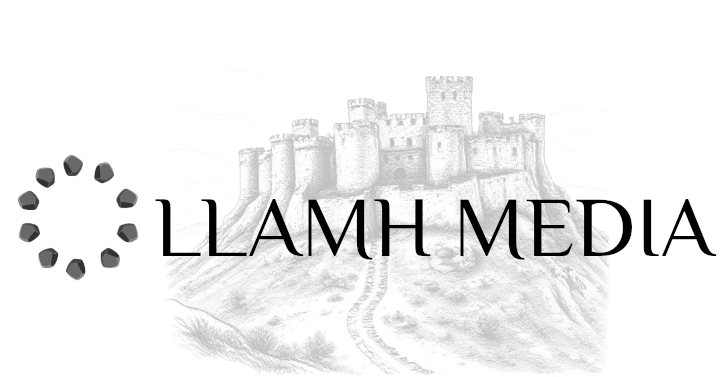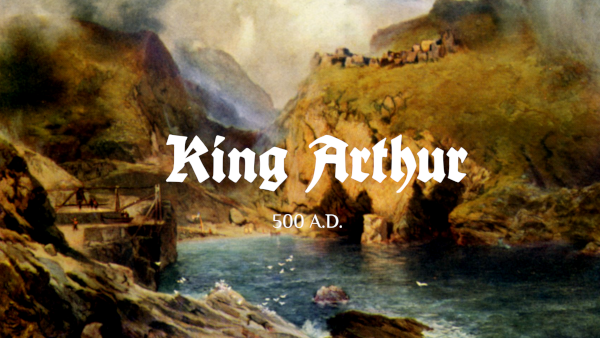King Arthur, a legendary figure according to British medieval history. It is said that he led the Britons in military campaigns against Saxon invaders in the late 5th and early 6th century.
In Geoffrey of Monmouth’s 12th century Historia Regum Britanniae, King Arthur features as a great warrior defending Britain from human and sometimes supernatural enemies.
The Birth of King Arthur
King Arthur was born at Tintagel Castle in the 5th Century, his father was King Uther and mother Igraine. King Uther the King of Britain fell in love with Igraine, who happened to be married to someone else, Gorlois. Gorlois was the Duke of Tintagel.
King Uther had Gorlois killed and asked the help of the famous Merlin to win Igraine’s hand. The deal was reciprocal, Merlin would guarantee Igraine’s hand in exchange for King Uther’s firstborn son.
When Arthur was born, Merlin came to take him away. Merlin had foretold a great evil coming to Britain, soon after Britain would fall into darkness. An unknown enemy of King Uther would soon poison the king. As time passed, only Merlin would know that there was a rightful heir to the British throne.
The Youth of King Arthur
With the British throne un-occupied, Merlin decided to hold a competition to determine who would be King. He placed the King’s sword into a stone. Only Arthur would be able to remove the sword, reclaiming his rightful seat on the throne of Britain.
Everyone observing this actualisation was furious, but Arthur was King, and Britain was brought out of darkness.
King Arthur As King
King Arthur, on his quest to rid Britain of evil, met King Leodegrance and fell for his daughter Guinevere. Arthur married Guinevere and King Leodegrance gave Arthur a gift of 150 knights, some of these knights would become the initial members of the “Knights of the Round Table”, they would follow a code of chivalry and serve their King.
The Legendary Sword Excalibur
While out on a patrol King Arthur arrived at a lake, he could see a hand with a wondrous sword protruding from the water’s surface. He grabbed the sword and the Lady of the Lake appeared. She parted with the sword on the condition that he would repay the favour in time to come.
Betrayal
King Arthur would be tested with betrayal during his reign. A knight of Arthur, Lancelot would betray his King by having an affair with Guinevere, whom she loved more than Arthur. When this came to light, Arthur’s knights set out to punish the traitor and burn Guinevere. However, Lancelot, skilled in combat was able to defeat the horde killing Gawain’s brothers and saving Guinevere.
The Pope demanded that Arthur and Lancelot stop fighting, Guinevere then returned and was forgiven.
As Arthur became feeble and realised that his time was almost up, he asked Bedivere to take “Excalibur” and throw it back into the lake, in which it was found. Bedivere initially refused. He eventually accepted the wish of his King and carried out the order.
Arthur was placed on a barge at Avalon to be healed. He was not heard of after that, he may have died in 542 CE, however some believe he never died and will come back to save Britain when he is needed most.
Reflections on the Story of King Arthur
The significance of pulling the sword out of the stone symbolises the journey every person will embark upon, the sword signalling the metaphysical reality that lives within every one of us, the non-temporal unchanging observer. The stone being the prison of materialism, the separation we experience disconnects us from the transcendent self. “Only when we remove “Excalibur” we reclaim the throne as Kings of our reality.
King Arthur is famously recounted as a King of England. This is incorrect. The legendary King was a British King, long before the Anglo-Saxons arrived. He would have spoke a Celtic language and ruled over the entire Island. Later, the English would incorporate him into their national identity. I can only postulate that this is due to recognising his significance upon the Island. The legendary king is very much a part of the bio-culture of Britain and his mystique is present upon the land.

